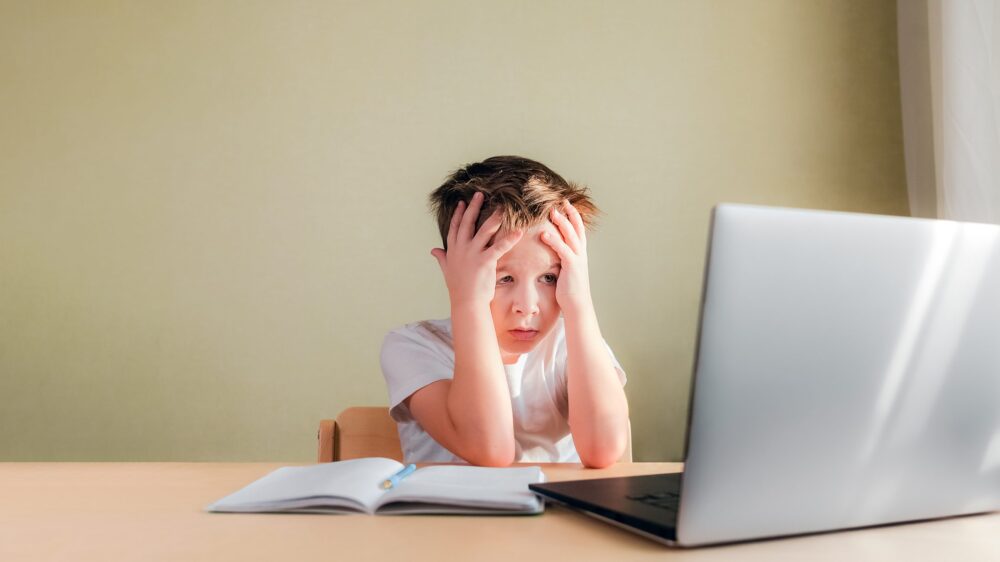UNICEF Says Pandemic Continues to Have Negative Impacts on Children, ‘When they’re not in school, they’re at risk.’
The United Nations International Children’s Emergency Fund (UNICEF), created in 1946, is one of the world’s largest organizations dedicated to providing support and care to children. Today, UNICEF is active in 190 countries and territories.
Although UNICEF focuses on children’s wellbeing, the organization has been a key player in delivering vaccines around the world for children as well as adults, including the Covid-19 vaccine. The Dallas Express spoke with UNICEF USA’s Tom Porter, Managing Director at the North Texas and Central Region, to understand the facts around children’s health and welfare as the pandemic goes on.
When it comes to vaccine distribution during the pandemic, Porter said UNICEF is, in many ways, “purpose-built” for the job. “We are one of the largest voices in terms of delivering the Covid vaccine to all people,” Porter said. UNICEF has paired with COVAX to deliver 1.4 billion Covid-19 doses by the end of 2021, and the organization aims to have 2.6 billion doses available for supply by the end of March 2022.
UNICEF’s push for widespread vaccination is, in part, for the benefit of children. “Children weren’t the first focus of the vaccine, but children were deeply impacted by the secondary impacts,” Porter said. “We’ve seen that here in Dallas, in our own community.”
A major secondary impact is a lack of access to education. Globally, children have lost 1.8 trillion hours of education, as of September, according to Porter. “Right now, there’s also about 168 million children who have been without an open school—their school has been completely closed—for almost a year now,” Porter said.
When children lose access to education, the negative consequences can have a ripple effect on the child’s life. According to a 2020 article by the New York Times, many students have fallen behind academically, which may lead to higher dropout rates. Younger children who missed out on crucial learning milestones may struggle to develop these foundational concepts that prepare them for life.
Porter said that lack of access to education is just one of the problems facing children during the pandemic. “There’s child labor, and girls and young women are at particular risk for things like child marriage.” There is also the issue of lack of access to food: “A number of children rely on nutrition and food provided by schools each year, so we’ve seen a huge spike in malnutrition,” Porter said. “When they’re not in school, they’re at risk.”
Dallas residents can support UNICEF’s local and international efforts by participating in some of their events this fall. Trick or Treat for UNICEF is launching later this month, according to Porter. Historically, kids participating in UNICEF’s trick or treat would go around with little orange boxes, collecting donations for other children in need.
The program has gone virtual this year but still offers opportunities for kids to create their own fundraisers and for adults to donate. “By taking it virtual, it allows both kids and the young at heart to start their own fundraisers,” Porter explained. “Families can participate together, and it’ll be a month-long celebration.”
Another event to look out for in Dallas is UNICEF’s 75 Event on November 30. This ten-city event celebrates UNICEF’s 75th anniversary by premiering a documentary that showcases UNICEF’s history as well as their participation in the Covid-19 response.
Those looking to join UNICEF on their mission to end the Covid-19 pandemic can do several things to help. In addition to participating in UNICEF’s events, gathering donations, starting fundraisers, and even using social media can boost vaccination efforts and ultimately help children and adults.
“We often ask folks to step up and use their voices to join us in protecting the rights of children,” Porter said. “Every day the pandemic goes on, children are still at risk. We need to do everything we can to get people vaccinated and get children back in school so they can go about their lives.”
To learn more about UNICEF and how you can help children in need, visit their website.

